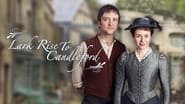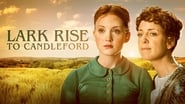micivetta
This series is so engaging from the start. Its about human issues like learning to be: steadfast, honest, generous and caring to those you live near. Th eBritish wit and propriety is nothing short of engaging and its so nice to have a show that share the trials and tribulations of people without blood, violence and vulgarity. Well done!
hdcdhargis
I love period pieces but this one is lacking. The real disappointment began with the stupidest ghost story ever then sealed it fate by replacing the barely likable hatefilled Zilliah with an even more unlikable fool Minnie. She has ruined the show. I cringe every time I look at her ugly stupid face and fast forward when she talks. The only characters with any realism or personality were Fisher Bloom and Celeste Brice Coulous. Fisher was straight forward and even called out Laura for her vanity. Mrs Brice said the most sensible thing in the whole show when asking Dorcus did she want a saint or a man. Men have needs. I have never seen a period piece who speaks about or scolds men for their sexual appetite and do not believe it is authentic. Also Laura pulled a modern bitch move when she told Nan not to hurt Alf. Like she is one to talk basically she sounds jealous that her whipping boy has found a prettier girl and won't be chasing her no more. The ideals of morals and what it means to be a respectable man or woman make no sense to me. Robert Timmins is supposed to be the picture of a respectable moral man but all I see is a hatefilled ass. He would have his own kids starve to save his precious pride because he refuses to take charity. In fact he is the only one who know when it is the right time to give charity. He berates Sir Tim for not letting his land be poached and berates James for fixing Queenie's roof. He refuses James offer to build a road when it could mean jobs for everyone and insists Lark Rise help the Arlesses. The shows morals compass seems to swing to whatever whim Robert Timmins decides is fit. I wonder why they don't throw out the church relics and worship the all knowing Timmins. Twister is another character I could do without everyone tip toes around him to not hurt his feelings like he is such a great man. He refuses to work and steals what little money Queenie makes to drink. He demands to be respected and for what being a lazy selfish ass. Respect is not owed it is earned. He ran around one show thinking he was 18 and in love with Rose. Dorcus is praised to heaven by the voice over every episode but I find her stupid self serving and too prideful. She is not happy unless she is stringing some guy along. She needs a Fisher to insult her vanity and bring her back down to earth. The actress who plays the part would do her self a service to stop worrying about poking her lips out when she talks and just do her lines. I can't focus on what she is saying without be distracted by what is wrong with her mouth. Hopefully she will be able to afford lip implants and I will be able to turn closed captioning off.
Chris Bee
The only historical drama series I watch these days and the highlight of my week. Every character is blessed with a real actor or actress. All perfectly cast, except one. One glance tells more stories than some of the shallower pedants are even capable of noticing. Dawn French alone was dire beyond words. As out of place as a full grown hippo in a pet shop. I would cheerfully have had her hung or transported! Or harpooned! The rest are truly delightful, albeit too freshly laundered. Where is the constant rain and inevitable mud of rural living, both then and now? Nevertheless, I hope this series runs forever. It goes down like a rich, warm sherry with very similar effects. Bravo to all concerned!
johnwarthen
Am a U.S.viewer, watching Series 1 on an all-region DVD player. I ordered this series as something my elderly mother might enjoy and have become engrossed myself. Sounding initially like a British variant on LITTLE HOUSE ON THE PRAIRIE, CANDLEFORD turns out to be a rich spectacle which discovers complexities in itself after pleasant but lightweight opening installments and by episode 4 becomes something altogether finer (I've seen only 1-7 so far). I think it not entirely accidental that this same fourth episode engineers a lengthy hiatus for LARK SPUR's most egregious blemish, the already oft-slammed Dawn French as the hamlet's debtor-reprobate. French isn't distractingly familiar in the U.S. but her lazy anachronistic performance, straight out of the classic "Coarse Acting" handbook, is an irritant just the same. Might as well note the other flaws that persist, noted in the more critical IMDb critiques: the usual over-explicit music; some wobbly continuity from one episode to the next (particularly notable in the lack of carryover after the milliner-sisters' traumatic reunion with their father); the disregard for the 18 mile separation of communities so forcefully laid-out in episode 1 and subsequently ignored; and, yes, the absence of squalor. Can't comment on the adaptation's disregard for the source-book since I haven't read it. But lordy, how much else excels! The writing, encompassing parlor-protocol and pub-chatter, has Dickensian swagger. If LARK SPUR's creators disembarked from the original text, they found their independent stride within a few traversals of their 20-or-so characters. Note how the Welsh postman, an evangelical stereotype and already tiresome within the first hour, in Episode 5 has a spiritual crisis, conveyed in a layman-sermon whose earnestness emits a skittering undertone of near-madness (wonderfully performed by Mark Heap). The porcelain lady-of-the-manor of Eps. 1-2 by 6-7 emerges as a tragic heroine. Twister, Lark Spur's aged comic layabout and scrounger, in Episode 6 has recall of a long-dead sister he imagines come back to haunt him in scenes as rapturously sad and true to senescent remorse as any great tragic work (Karl Johnson, an actor I've never noted before, is extraordinary). More than simply showcasing the series' mostly wonderful cast, the collective of directors grows increasingly muscular in their framing of scenes as LARK SPUR progresses: a complex moment in Ep. 7, in which the squire's wife watches her husband across the street and submits to the goading of shopwomen she dislikes, imagining the worst, is shot with an economic forcefulness that moots distinctions between TV and cinematic filming. Nothing "twee" about craft of that order-- nor about the series itself, once past its establishing episodes. Yet subtleties noted here are secondary to something LARK SPUR has in fixed place from the start: Julia Sawalha's post-mistress, and her rapport with lifetime friend and village squire Ben Miles, an attenuated near-romance that in abstract sounds an embarrassment-- two terrific actors who appear to realize they have found gorgeous grown-up roles in the unlikeliest of projects, and like the rest of the production's cast/crew, perform as if BBC's calculations about "Sunday night programing" wholly underestimated their work. I cannot push these Reg. 2 programs at friends, who haven't the equipment to play them, and so I can only enthuse here. This is beautiful serial television.




